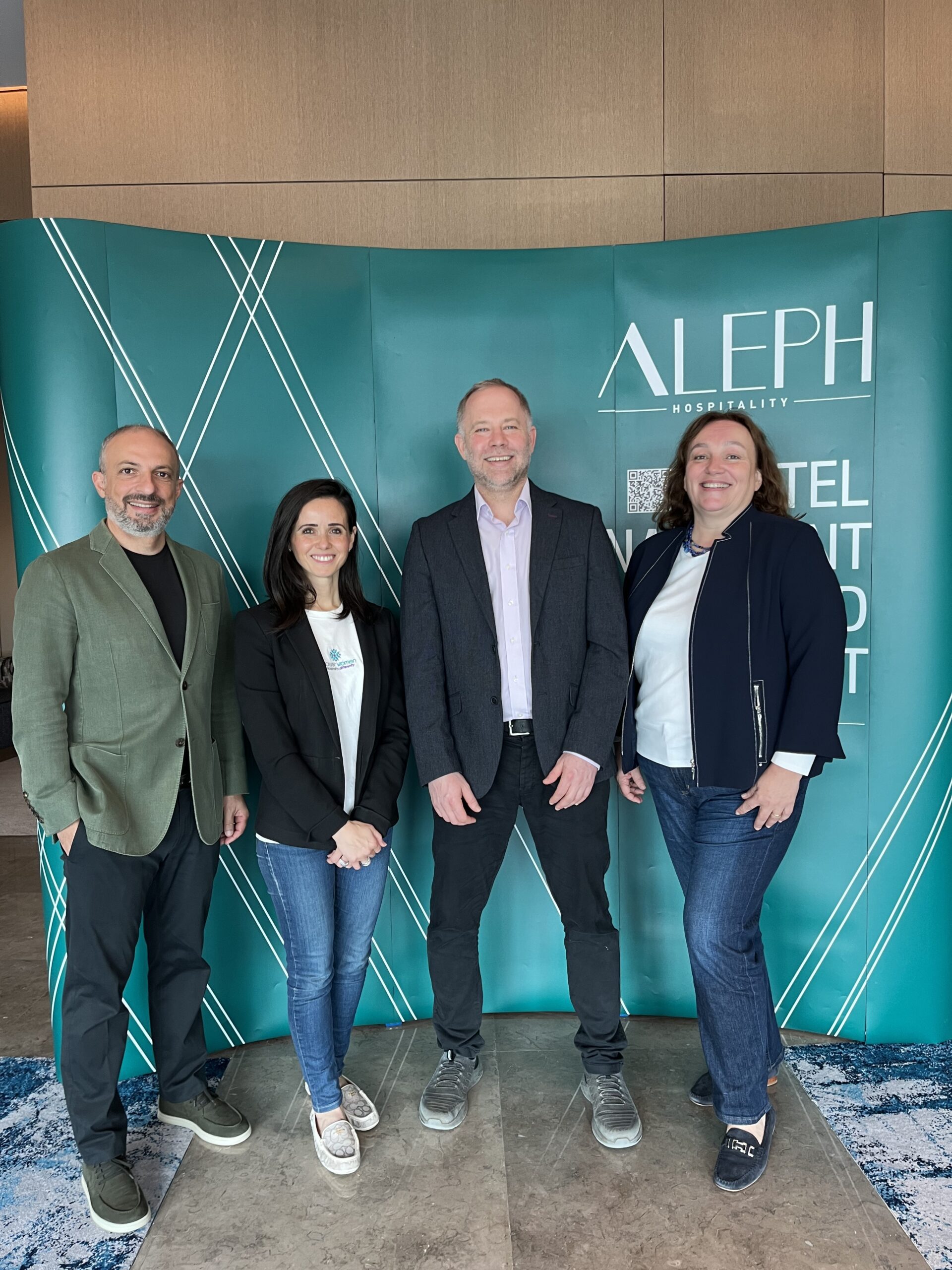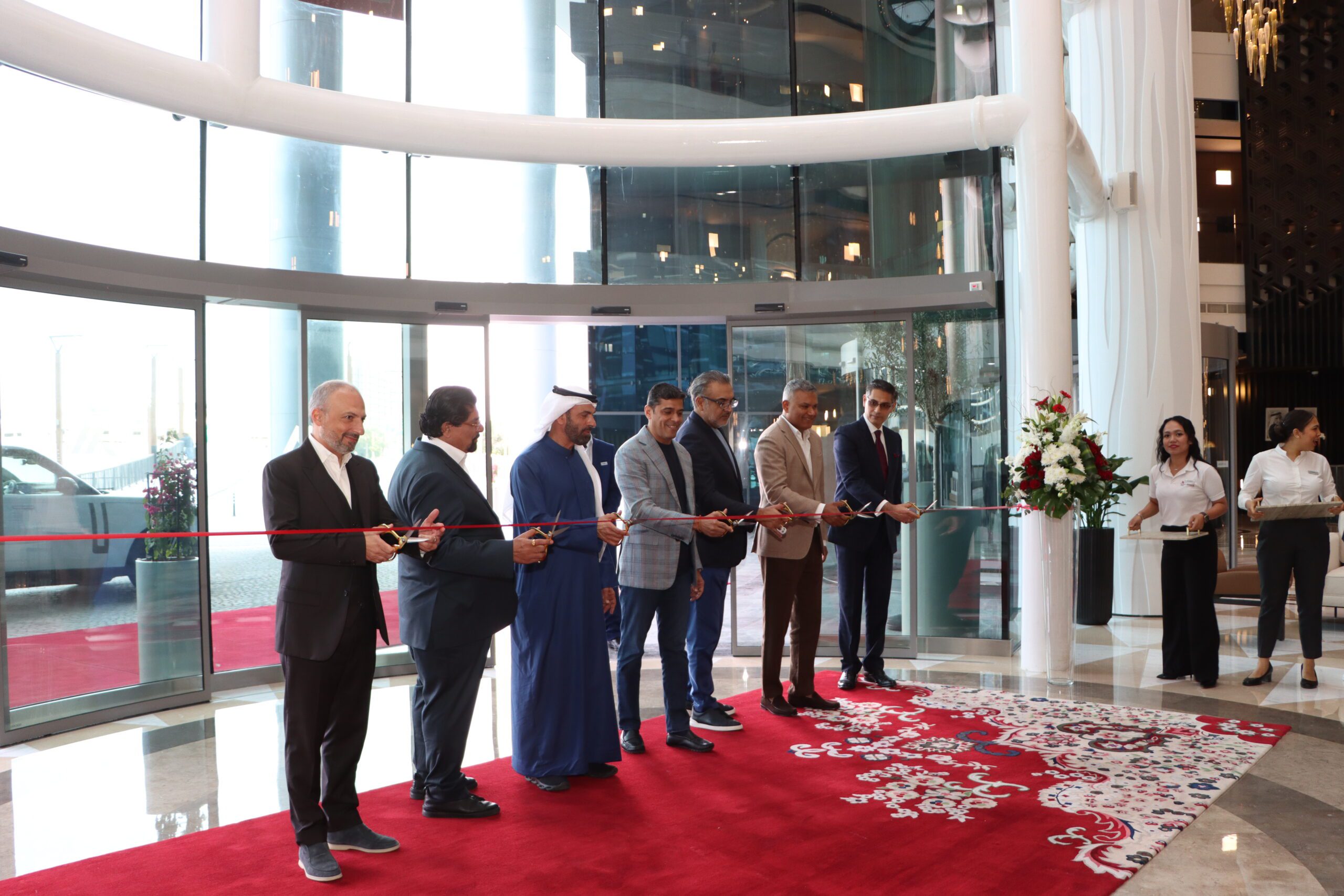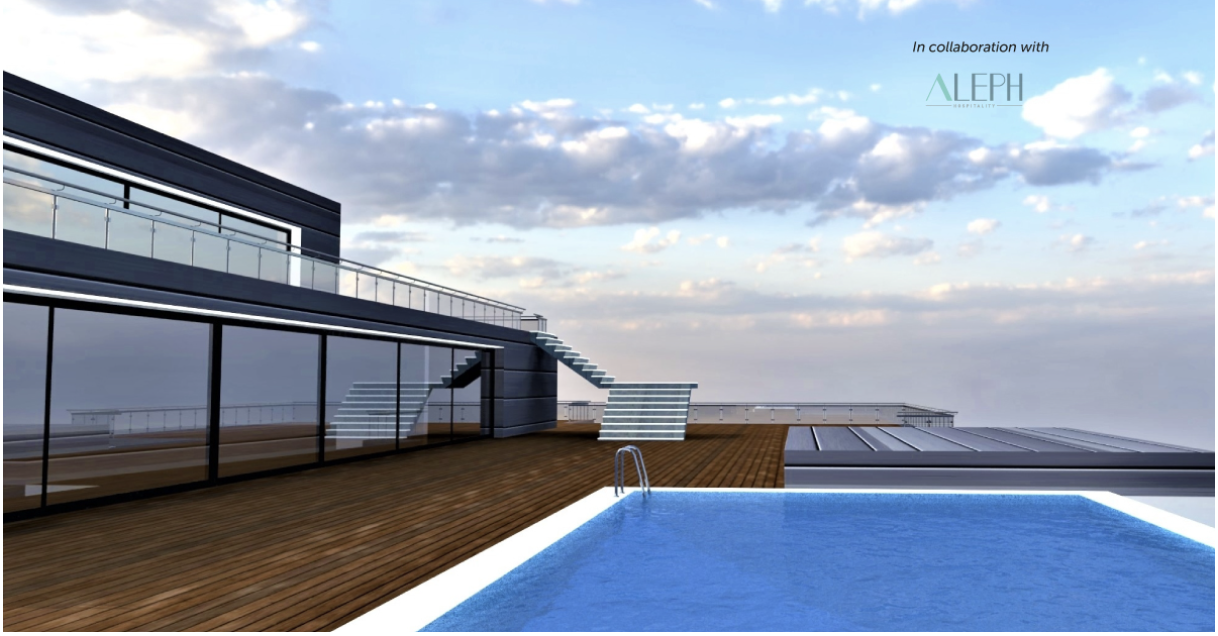
Setting the Standard for Sustainability and Social Responsibility in Hotels across the African Continent
Century Park Hotel and Residences, located in the hills of Nyarutarama in the capital of Rwanda, Kigali, has won the Best Performing Award by Aleph Hospitality in Dubai for remarkable achievements in sustainability.
Century Park Hotel and Residences’ dedication to social responsibility is apparent in their noteworthy initiatives such as health insurance for 50 families, blood donations and inviting SOS children to experience the world of hospitality. In addition, they have taken significant sustainability actions by banning plastic cups, introducing an extensive recycling programme, and replacing plastic straws with straws made of rice.
A particular highlight for the hotel was the visit by 50 children from Kigalis’ orphanage SOS Children’s Villages. The children spent an exciting afternoon of learning, motivation and games at the hotel. Talking about dreams and hopes in life, the children learned how they could become future hotel managers or kitchen chefs. The children got real excited talking about the many possibilities for their future, with one kid exclaiming, “I want to be President!”
Walid Choubana, Director of Operations at Century Park Hotel and Residences, says: “This award recognizes Century Park Hotel & Residences as a sustainability leader, and it inspires us to continue setting new standards for social responsibility and sustainability in the hospitality industry. We are mindful of our responsibility to the beautiful country of Rwanda and its people, so we carefully choose initiatives which will have a meaningful impact on our environment, and which will empower the community.”
Aleph Cares
Since 2022, Century Park Hotel and Residences in Kigali has been managed by Aleph Hospitality, the largest independent hotel management company in the Middle East and Africa. A company which take their responsibility for the planet and its people seriously, aiming to limit the environmental footprint of the hotels in their portfolio and supporting local causes and communities.
Across Africa and the Middle East, all hotels in Aleph Hospitality’s portfolio are enrolled in the sustainability programme, Aleph CARES, which stands for Community, Aleph, Responsible, Environment and Sustainability. The programme requires all hotels to monitor and analyse energy and water consumption, to have a recycling programme in place, to use eco-friendly cleaning products, to promote locally sourced food in the restaurants and to take action around corporate social responsibility. Every single team member at every hotel receives training in Aleph Cares as part of their induction, and all hotel General Managers have measurable sustainability objectives as KPIs. The comprehensive programme is based on five pillars:
Management Approach
We train our team in environmental best practices, promote diversity and inclusion in the workforce, partner with NGOs to fight unemployment, underemployment, human rights and human trafficking.
Energy & Water Conservation
We monitor and analyse consumption, use efficient equipment, install regulating tools and introduce towel reuse programmes.
Waste Management
We minimise waste, recycle disposables, and eliminate single use plastics.
Product Selection
We use eco-friendly cleaning products, promote local, seasonal and healthy produce, ban endangered seafood species on menus, responsibly source supplies, and use eco-design material.
CSR & Solidarity
We volunteer for community work and give to charities that support education, career readiness, wellness and environmental conservation projects.
On a corporate level, an example of Aleph Hospitality engaging with humanitarian projects is the group’s management agreement for three Boma hotels in Kenya, whereby they donate 5% of their fees to the Kenya Red Cross.
How to build a culture around sustainability
With a portfolio of hotels which are both dissimilar in character and in location, as different from each other as Dubai from Nairobi, it can be a challenge to implement a corporate sustainability programme. What works for one hotel or location doesn’t necessarily work for another. So, how has Aleph Hospitality managed to get their sustainability programme to succeed and thrive in a diverse hotel portfolio?
In short, they have built an internal culture which is self-driven by passion and knowledge. Their principle for success is to engage team members to take ownership. They ask each hotel to appoint a Pioneer who is inherently passionate about environmental, social, and corporate governance, and who is committed to raising awareness of these issues. Taking on this responsibility, each pioneer researches and initiates viable solutions at their respective hotel, working closely with the local team to develop and implement best practices. The results have been astounding, to the point that some hotels now have not just a single pioneer but what they themselves have proudly termed: a sustainability army.
Another principle for success is to localise the sustainability strategy for each hotel, inviting the pioneers and hotel teams to bring forward their own ideas. Ideas that fit the hotel because they stem from an in-depth understanding of opportunities and limitations in their community and country. With corporate’s role being one of support and encouragement, Aleph Hospitality focuses on what CAN be attained at local levels instead of dictating standards.
An example of localised efforts is the “give a soap, give a hope” project at three hotels in Kenya. Soap leftovers from hotel rooms are melted down to make new soap bars which are then donated to children’s homes and people in the community who cannot afford to buy soap. Another example is the kitchen garden on hotel premises which was sprouting more greens than could be used in the restaurants’ menus. Thinking creatively, the team started to sell excess greens to the hotel staff for private use, reducing food waste and putting the revenue back into sustainability initiatives.
A greener course for the future
On the African continent, Aleph Hospitality’s current hotel portfolio includes properties in Ethiopia, Kenya and Rwanda. In the very near future the portfolio will grow substantially to include Ghana, Democratic Republic of the Congo, Cameroon, Liberia and Tanzania.
Looking ahead, the company is planning additional sustainability efforts for both existing and future hotels under their management. These include encouraging hotels to find and offer sustainable trips and activities close by to reduce transportation, to support local associations that share the same moral and ethical values, to donate products being phased out for reuse such as towels and linen as well as any unused food products, to organise projects to raise funds and collect donations, to offer alternatives to all plastic use, to partner with non-profit organisations to support local causes and to utilise unused space onsite to create a sustainable resource such as a vegetable garden.
Bani Haddad, Founder and Managing Director of Aleph Hospitality says: “When I founded Aleph Hospitality eight years ago, I was determined to create a sustainable development programme for the hotels under our management, as there are so many processes in hotels which can be vastly improved in regard to sustainability. Our goal is to reach a portfolio of 50 hotels in the Middle East and Africa by 2026, and by introducing Aleph Cares in as many as 50 hotels, over time we can make a significant difference and positively contribute to preserving our planet and protecting our people.”
 f
f
 f
f
 f
f
 f
f
 f
f
 f
f
 f
f
 f
f
 f
f
 f
f
 f
f
 f
f
 f
f
 f
f